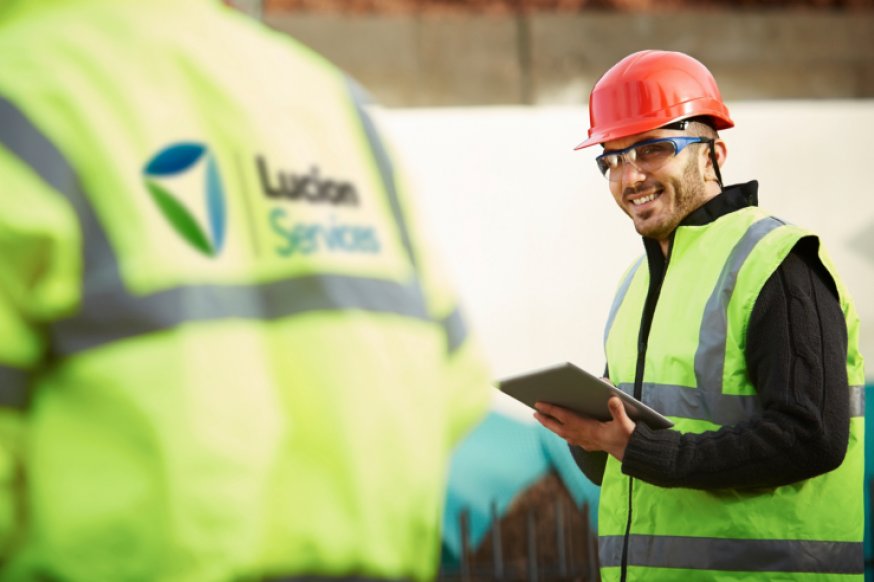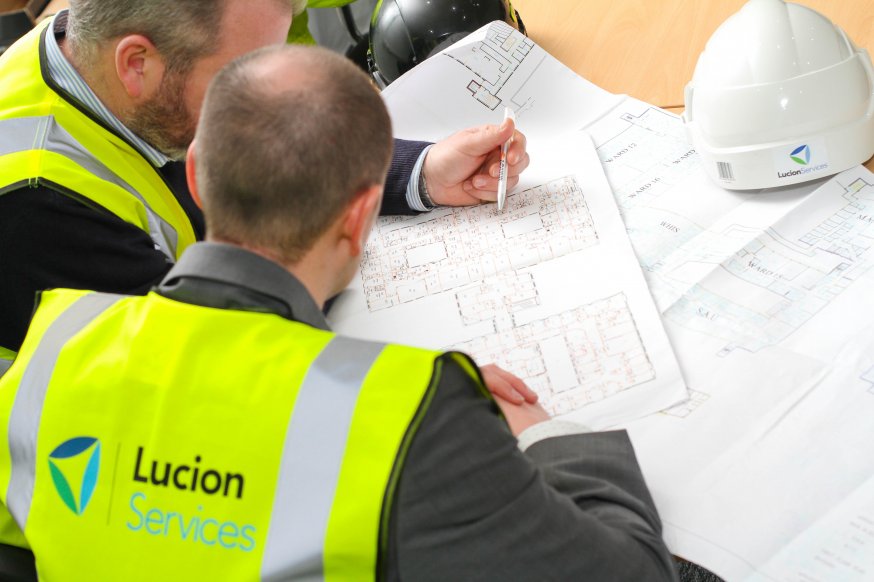
Phone: 0345 5040 303
lucionservices.com
Email: info@lucionservices.com
|
|---|
Indoor Air Quality AssessmentsAs part of the Lucion Group, we deliver Indoor Air Quality Assessments through our sister company Delta-Simons, an established multi-disciplinary environmental and health and safety consultancy providing trusted advice and solutions for sustainable development. 

FREE DOWNLOAD
Health and Safety Risk Assessment Template

Risk Assessments are part of the risk management process and are included in the Management of Health and Safety at Work Regulations. A Risk Assessment is a process of identifying what hazards currently exist or may appear in the workplace. Utilise our Risk Assessment PDF example and template to help conduct your own Risk Assessment. _1.png)
Download From NexGen
What is an Indoor Air Quality Assessment?During the lifespan of buildings there are constant challenges to achieve and maintain optimum system performance while providing clean, compliant and hygienic indoor environments for the health and well-being of building users. Air Quality Assessments are provided in various formats and levels of detail, tailored to meet specific requirements in support of Planning Applications and Environmental Impact Assessment (EIA) purposes across the UK. These assessments evaluate both the construction and operational phases of a particular development. The main sectors that Delta‑Simons provide Air Quality Consultancy Services in are:
Air Quality Scoping StudiesAs part of the Air Quality Assessment, Delta-Simons' specialist Air Quality Consultants deliver Air Quality Scoping Studies. Scoping is a critical early step in the preparation of any air quality assessment. These studies describe the existing state of air quality within the assessment area, the presence of pollutants and the potential sources of emissions to atmosphere. They also identify potential direct, indirect and cumulative effects and their significance. Air quality scoping studies evaluate the feasibility of a proposed scheme to help understand potential constraints associated with developments. Through streamlining the assessment approach and utilising resources in the most efficient way, our team provide cost-effective solutions for any air quality assessment by identifying potential significant effects at the earliest design stages of a development. What else is included in an Indoor Air Quality Assessment?Our Delta-Simons Environmental Assessment Team provides a broad range of proactive indoor air quality monitoring services as well as a reactive response to indoor air quality problems in occupied buildings. Our specialist indoor air quality services include:
Why do I need an Indoor Air Quality Assessment?The quality of air in both indoor and outdoor environments is critical to the mental and physical health of your building users. 90% of our time is also spent indoors, yet many people do not consider the health impacts of increased levels of CO2 in the room, or the presence of Volatile Organic Compounds (VOCs), a bi-product of off-gassing from things such as newly bought furniture, paint, perfumes, as well as outdoor pollutants entering the building from sources such as transport, energy supply, dust, agriculture, waste management or other air pollutants. The effects of poor air quality on the human body, both physically and mentally cannot be ignored. Eye irritation, headaches, dizziness, fatigue and inability to concentrate are some of the few subclinical Sickness Building Syndrome (SBS) symptoms that often get attributed to other possible causes. Chronic long term exposure to air pollution, both indoors and outdoors, can lead to more serious diseases such as cardiovascular disease, strokes and a variety of cancers as well as some studies presenting evidence of links to Alzheimer’s and other neurodegenerative diseases. But the effects of poor air quality aren’t limited to human health. According to the 2004 study ‘The effects of indoor air quality on performance and productivity’, the effects of poor indoor air quality have a direct impact on performance and productivity. The study states that the data collected from a series of experiments where participants in office buildings were exposed to a variety of air quality levels, that “[t]he size of the effect on most aspects of office work performance appears to be as high as 6-9%[.]” Sampling and air quality assessments should be undertaken to determine the quality of air in an occupied area and/or workplace. What are my responsibilities?Whilst there is no specific legal requirement for employers to conduct Indoor Air Quality Assessments, there are a wealth of regulations relating to a multitude of legal requirements placed on employers to ensure employees within their buildings are protected against unnecessary exposures to harmful and toxic substance and air borne fibres. As part of the Lucion Group, our knowledge of the issues surrounding the risk management and legal compliance of hazardous materials in buildings gives our commercial clients complete reassurance throughout their project, with real time visibility of all hazardous materials and all risks. At the heart of everything we do is ESG (Environment, Social & Governance) and for Lucion, success means a positive impact on people, planet and prosperity. Want to partner with a purpose driven holistic environmental services supplier? Click 'Make an Enquiry' now or give our team a call on 0345 5040 303. Download a printable PDF of this page |